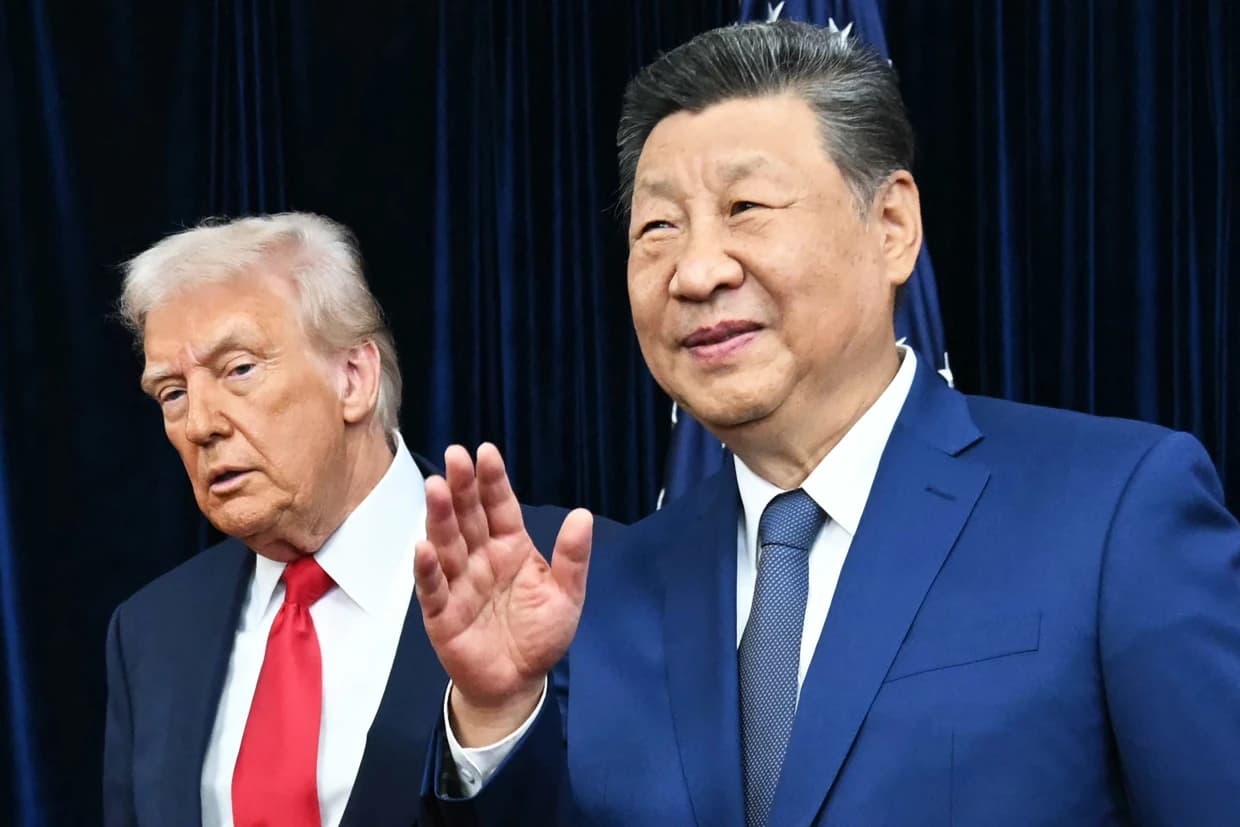We're loading the full news article for you. This includes the article content, images, author information, and related articles.
A high-stakes deal between Washington and Beijing to lower tariffs and ease a dispute over rare earth minerals offers potential stability for the Kenyan economy but introduces new complexities for the nation's strategic mining ambitions.

A critical meeting between U.S. President Donald Trump and Chinese President Xi Jinping in Busan, South Korea, on Thursday, October 30, 2025, has resulted in a significant de-escalation of the trade war between the world's two largest economies. The agreement, hailed by President Trump as a "great success," includes a reduction in U.S. tariffs on Chinese goods, a temporary resolution to a contentious dispute over rare earth minerals, and renewed commitments on agricultural trade and counternarcotics. The outcomes of the summit, held on the sidelines of the Asia-Pacific Economic Cooperation (APEC) forum, are poised to send ripples through the global economy, with discernible impacts for Kenya and the wider East African region.
According to multiple international reports and a statement from China's Ministry of Commerce, the United States will lower its overall tariff rate on Chinese imports from 57% to 47%. This reduction is linked to a pledge from Beijing to intensify efforts to curb the production of fentanyl and its precursors. In a move with significant implications for global supply chains, China has also agreed to suspend for one year a set of new, stringent export controls on rare earth elements that were announced on October 9, 2025. Furthermore, the deal includes a commitment from China to resume substantial purchases of U.S. agricultural products, particularly soybeans, a major boost for American farmers who had been severely impacted by previous boycotts.
The one-year pause on China's rare earth export controls is particularly relevant for Kenya, which possesses significant, largely untapped deposits of these critical minerals. The Mrima Hill site in Kwale County is estimated to hold one of the world's largest reserves of rare earths, valued at over $62 billion. The aggressive push by China, which currently processes over 90% of the world's rare earths, to control its exports had heightened global urgency to develop alternative supply chains. This geopolitical tension was seen as a potential catalyst for accelerating investment in Kenyan mining projects from the U.S. and other partners seeking to reduce their dependency on China.
The temporary truce may recalibrate the immediate incentives for such investment. With the immediate threat of a Chinese supply cutoff removed, the pressure to fast-track the development of alternative sources like those in Kenya could lessen in the short term. However, analysts note that the fundamental strategic goal of diversifying the rare earths supply chain remains. The U.S.-China deal is a one-year agreement, subject to renegotiation, meaning the underlying supply chain vulnerabilities persist. This provides a continued, if less frantic, window of opportunity for Kenya to position itself as a stable, long-term supplier by advancing regulatory reforms and attracting strategic mining partners.
For the broader Kenyan economy, the de-escalation of the trade war promises a period of greater global economic stability. A prolonged and escalating conflict risked a global slowdown, which the International Monetary Fund (IMF) had previously warned could significantly cut growth in sub-Saharan Africa. A calmer trade environment can lead to more predictable global demand, stable supply chains, and reduced volatility in the Kenyan Shilling, benefiting both importers and exporters.
The deal also brings the global agricultural market into sharp focus. China's resumption of large-scale U.S. soybean purchases will impact global prices and trade flows. While Kenya is not a major soybean exporter, the price of soybeans is a key determinant in the cost of animal feed. Fluctuations in the global market could therefore affect Kenyan livestock farmers and, ultimately, food prices. The agreement comes as Kenya is actively pursuing its own landmark trade deal with China to gain duty-free access for its key agricultural exports, including tea, coffee, and avocados, in an effort to rebalance a trade deficit that heavily favors Beijing. The renewed U.S.-China engagement may influence the dynamics of these separate negotiations.
The summit also addressed global security issues, with both leaders agreeing to "work together" on finding a resolution to the war in Ukraine, though specific details of this cooperation remain sparse. This development is part of a broader diplomatic landscape where African nations, including Kenya, have been navigating the pressures of great power competition. A more cooperative stance between the U.S. and China on major global issues could reduce the diplomatic pressure on countries to choose sides.
The trade truce also provides a more stable backdrop for crucial U.S.-Africa trade relations, particularly the African Growth and Opportunity Act (AGOA), which is set to expire in 2025. The uncertainty of the trade war had cast a shadow over the future of this pact, which is vital for Kenyan exporters, especially in the apparel industry. A reduction in global trade hostility could create a more favorable environment for the negotiation of AGOA's renewal or a successor agreement, safeguarding thousands of Kenyan jobs. The meeting concluded with plans for President Trump to visit China in April 2026, signaling a commitment to continued dialogue.
Keep the conversation in one place—threads here stay linked to the story and in the forums.
Sign in to start a discussion
Start a conversation about this story and keep it linked here.
Other hot threads
E-sports and Gaming Community in Kenya
Active 9 months ago
The Role of Technology in Modern Agriculture (AgriTech)
Active 9 months ago
Popular Recreational Activities Across Counties
Active 9 months ago
Investing in Youth Sports Development Programs
Active 9 months ago